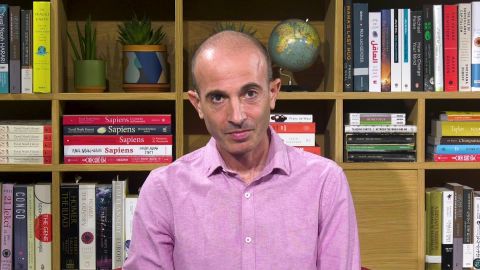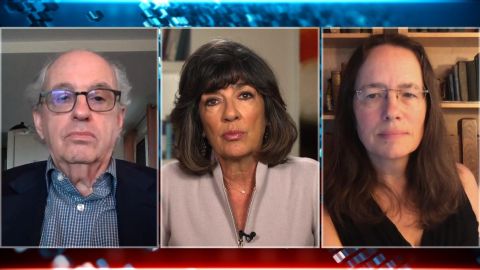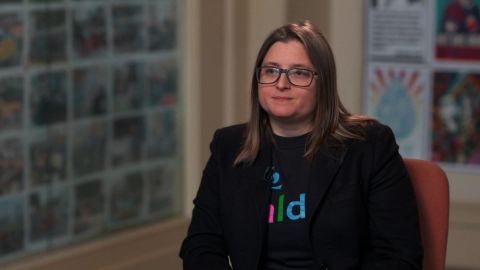Read Transcript EXPAND
CHRISTIANE AMANPOUR: Do you think the fears are going to be born out or do you think it is going to be a normal election in the end?
NORM ORNSTEIN, RESIDENT SCHOLAR, AMERICAN ENTERPRISE INSTITUTE: I’m a little worried, Christiane. Let me say as a stress test, this is one like a patient with many clogged arteries. The American election system is unique among the established democracies and not in a good way. As a general matter, our elections are decentralized, they’re underfunded, our partisan election officials make us unique in a different way, it is like having a football match or the world cup where the referees own a part of one of the teams. We have state legislatures that govern elections in the different states that themselves are highly partisan and often tilt the scales towards one party or the other, thanks in part to their partisan gerrymandering, and we have a problem with turnout because our system, unlike so many others, makes it hard for people to vote to begin with. And now, we have courts that have been stacked through the course of the Trump administration that are themselves putting a thumb on the scales to make it harder for people to vote. So, heading into the election, the good news is so many people that have voted early, one part of the bad news is we’re seeing courts that may disallow a number of those votes and a president, of course, who is trying to say that the votes that are cast early at the polls, and early voting or by mail, are themselves corrupt. This is a real challenge and the only thing that could overcome it is a landslide kind of victory where there are no questions and the votes that are disallowed won’t matter so much.
AMANPOUR: Landslide, that is a high bar in order to try to get through what should be a normal democratic election in the world’s biggest democracy. Heather Cox Richardson, you’ve written about yourself, I’m a history professor interested in the contrast between image and reality in American politics. I believe in the American democracy, despite its frequent failures. You also write, you know, “Letters from an American. What do you observe, particularly, you know, in your — amongst your students and younger people about this election as a stress test?
HEATHER COX RICHARDSON, HISTORY PROFESSOR, BOSTON COLLEGE: What Norm is concerned about it, I’m going to give you the other side, and that’s that, yes, this is a terribly stressful time in America, and, yes, democracy is being tested. But one of the things that is really remarkable about this particular moment is how many people are recognizing that democracy is not a spectator sport, and they’re showing up to vote early, they’re showing up to vote by mail, they’re tracing their ballots. And more than that, they’re taking back the public conversation. And from where it has been really for a generation or maybe even two now since the Reagan administration to the present and you see people talking about what they want from their government and what it means to be an American and how this is an inclusive country and that’s what they want back
About This Episode EXPAND
Christiane speaks with Norm Ornstein and Heather Cox Richardson about election day. She also speaks with Yuval Noah Harari about how our species is faring during its current existential crisis. Hari Sreenivasan speaks with immigration attorney Bridget Cambria about why she believes the asylum system must change.
LEARN MORE


